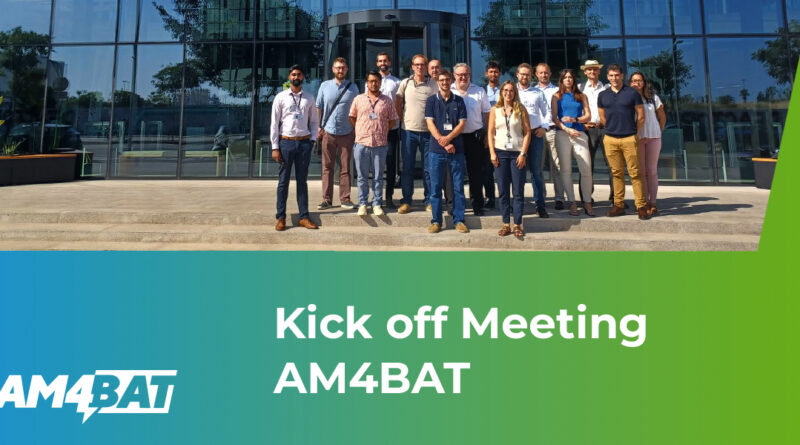Press Release – The AM4BAT project develops solid-state batteries made by 3D printing
The AM4BAT project develops solid-state batteries made by 3D printing
The project enables the development of anode-free solid-state batteries, manufactured using 3D printing by photopolymerization in vats, which are safer, more sustainable and have a higher capacity.
AM4BAT, coordinated by Leitat and financed by the European Union, rests on the participation of 11 entities from technological centers and universities to the automotive industry.
The rapid rise of electric mobility and renewable energies is pushing the market for lithium batteries to new levels. Most battery technologies are still based on conventional liquid electrolyte systems which is a major concern for safety due to the chemical instability and flammability of liquid electrolytes.
The AM4BAT project focuses on developing an anode-free solid-state battery (SSB), fabricated in a Vat Photopolymerization 3D LCD printing process and delivering energy densities of 400 Wh/kg and 1000 Wh/L for Electric vehicle (EV) applications. The project aims at the assembly and validation of a 3 Ah cell with a charge capability of 70% of its total capacity in 5 minutes and cyclability of 3,000 cycles until 80% of the original capacity.
AM4BAT’s distinctive attributes that makes it a unique and exclusive project, such as its ability to reduce production costs and time for both cathode and electrolyte, reduce the use of lithium metal, and optimize the interface of the solid electrolyte and the cathode to obtain ionic conductivity values similar to those of conventional liquid electrolyte systems.
Leitat will play a crucial role in coordinating and executing the activities, facilitating its mastery of the first electrolyte formulations, which have already been sent for testing in the vat photopolymerization process; its formulation will later be optimized to increase ionic conductivity. With the support of the consortium constituted by: French Alternative Energies and Atomic Energy Commission (CEA), AIT Austrian Institute of Technology GmbH, Vrije Universiteit Brussel, Torrecid S.A, Leclanché GmbH, Toseda s.r.o., Psa Id, University College London, Photocentric Limited, and Cambridge Nanomaterials Technology Ltd.
The project has a planned duration of 4 years under grant agreement nº: 101069756 with a European Union contribution of 4.854.773,75€.
https://am4batproject.eu/
https://www.linkedin.com/company/am4bat/
https://twitter.com/am4batproject
Keep up to date by following us on social networks:
– Twitter: https://twitter.com/am4batproject
– Linkedin: https://www.linkedin.com/company/am4bat/

